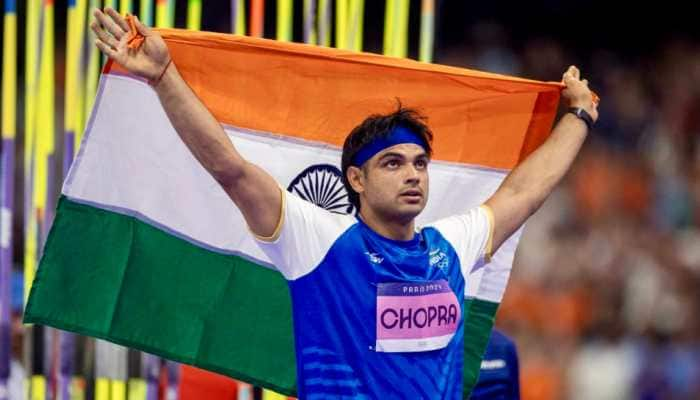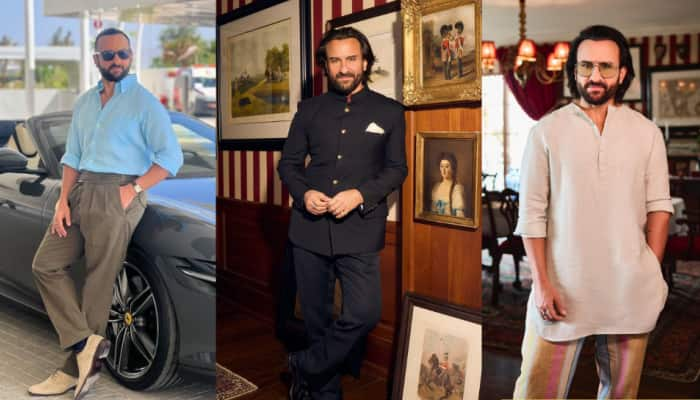Nehru: A true visionary!
When global crisis hit, Indian economy’s resilience reminded of Nehru`s foresightedness.
Trending Photos
)
 Ritam Banati
When the world witnessed global recession, Indian economy’s resilience in the face of it was a reminder of the right blend of capitalism and socialism that the country’s first Prime Minister implemented by sowing the seeds of mixed economy in post-colonial nascent India. A hardcore Communist in the 1920s, Pandit Jawaharlal Nehru was greatly influenced by the 1917 Bolshevik Revolution. But his ‘mixed economy’ concept was a practical proposition for India which had been left plundered to the hilt by British rule.
This approach was needed for Indian agriculture as well as industry. Especially when a huge portion of the most productive agricultural lands fell in Pakistan and the corresponding industries remained in India.
This Nehruvian approach coupled with the policy of Non-Alignment in an era of Cold War politics was meant to rake in badly-needed dividends.
When the world was divided into two blocs, one leaning towards superpower USA and the other towards then superpower USSR, he advocated the policy of non-alignment which India followed under his charismatic leadership.
Pandit Jawaharlal Nehru was the first and so far the longest serving Prime Minister of free India (1946 to 1964). He is credited with being the founding father of institutional democracy in India. The foundations of democracy were laid by him. Considering these facts, he has been aptly called the architect of modern India. He came to India armed with western education which exposed him to the political movements of Europe in the first three decades of this century.
As a politician, he worked his way up through municipal elections in Allahabad and through Kisan (peasant) Movement in Uttar Pradesh during 1920s.
Being a firm believer of secularism, the basic reasoning of secularism which he put forward was religious tolerance and separation of religion from politics.
The country’s first Prime Minister was imprisoned quite a few times including in 1942 when he was arrested during Gandhi’s call to the British to quit India or the Quit India Movement. During his time in jail, he wrote a few books including the much-acclaimed “The Discovery of India” and “Glimpses of World History”.
The historic Panchsheel agreement was signed during Nehru’s time on April 29, 1954, and it was conceptualised to be the basis of friendly relations between India and China. It is a different matter that Panchsheel became null and void when China attacked India in 1962. He has often been criticised for India’s debacle in the Indo-China war.
In 1955, the award Bharat Ratna was honoured further when it was conferred upon him.
Born on November 14, 1889 in Allahabad, central India to renowned advocate Motilal Nehru, Jawaharlal completed his graduation from Cambridge University and returned to India in 1912. His role in the freedom struggle was contributory.
India lost Chacha Nehru on 27th May, 1964 in New Delhi to a third and fatal stroke. But the ideas and values that he gave the country live on to this day-
"Long years ago we made a tryst with destiny, and now the time comes when we shall redeem our pledge, not wholly or in full measure, but very substantially. At the stroke of the midnight hour, when the world sleeps, India will awake to life and freedom. A moment comes, which comes but rarely in history, when we step out from the old to the new, when an age ends, and when the soul of a nation, long suppressed, finds utterance. It is fitting that at this solemn moment we take the pledge of dedication to the service of India and her people and to the still larger cause of humanity."
Ritam Banati
When the world witnessed global recession, Indian economy’s resilience in the face of it was a reminder of the right blend of capitalism and socialism that the country’s first Prime Minister implemented by sowing the seeds of mixed economy in post-colonial nascent India. A hardcore Communist in the 1920s, Pandit Jawaharlal Nehru was greatly influenced by the 1917 Bolshevik Revolution. But his ‘mixed economy’ concept was a practical proposition for India which had been left plundered to the hilt by British rule.
This approach was needed for Indian agriculture as well as industry. Especially when a huge portion of the most productive agricultural lands fell in Pakistan and the corresponding industries remained in India.
This Nehruvian approach coupled with the policy of Non-Alignment in an era of Cold War politics was meant to rake in badly-needed dividends.
When the world was divided into two blocs, one leaning towards superpower USA and the other towards then superpower USSR, he advocated the policy of non-alignment which India followed under his charismatic leadership.
Pandit Jawaharlal Nehru was the first and so far the longest serving Prime Minister of free India (1946 to 1964). He is credited with being the founding father of institutional democracy in India. The foundations of democracy were laid by him. Considering these facts, he has been aptly called the architect of modern India. He came to India armed with western education which exposed him to the political movements of Europe in the first three decades of this century.
As a politician, he worked his way up through municipal elections in Allahabad and through Kisan (peasant) Movement in Uttar Pradesh during 1920s.
Being a firm believer of secularism, the basic reasoning of secularism which he put forward was religious tolerance and separation of religion from politics.
The country’s first Prime Minister was imprisoned quite a few times including in 1942 when he was arrested during Gandhi’s call to the British to quit India or the Quit India Movement. During his time in jail, he wrote a few books including the much-acclaimed “The Discovery of India” and “Glimpses of World History”.
The historic Panchsheel agreement was signed during Nehru’s time on April 29, 1954, and it was conceptualised to be the basis of friendly relations between India and China. It is a different matter that Panchsheel became null and void when China attacked India in 1962. He has often been criticised for India’s debacle in the Indo-China war.
In 1955, the award Bharat Ratna was honoured further when it was conferred upon him.
Born on November 14, 1889 in Allahabad, central India to renowned advocate Motilal Nehru, Jawaharlal completed his graduation from Cambridge University and returned to India in 1912. His role in the freedom struggle was contributory.
India lost Chacha Nehru on 27th May, 1964 in New Delhi to a third and fatal stroke. But the ideas and values that he gave the country live on to this day-
"Long years ago we made a tryst with destiny, and now the time comes when we shall redeem our pledge, not wholly or in full measure, but very substantially. At the stroke of the midnight hour, when the world sleeps, India will awake to life and freedom. A moment comes, which comes but rarely in history, when we step out from the old to the new, when an age ends, and when the soul of a nation, long suppressed, finds utterance. It is fitting that at this solemn moment we take the pledge of dedication to the service of India and her people and to the still larger cause of humanity."
Stay informed on all the latest news, real-time breaking news updates, and follow all the important headlines in india news and world News on Zee News.
Advertisement
Live Tv
Advertisement







)
)
)
)
)
)
)
)
)
)
